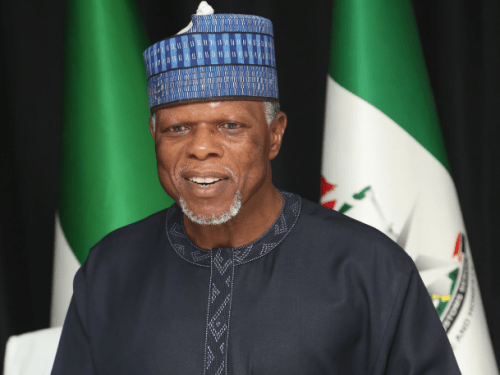
I am in total support of the concession of Customs modernization project but with a caveat that the concessionaires should be people that are proven, tested in the industry and have all it takes to deliver the project as at when due. The concessionaires have the technical know-how to conduct this business, the government has no business being in business. Customs is a branch of the government and therefore they cannot handle this project effectively and efficiently; the concessionaires are coming also with their technical partners and experts who know what it takes to carry out this project which I know we do lack within the Customs who are not trained as an expert in the field. I suggest we give it to those who know what it takes to do it and doing it with all seriousness it deserves. Let us not forget the concessionaires would be coming in with international best practice and not bringing in parochial, rule of the thumb type of policies and procedures that will stall the project. We have a lot of uncompleted projects today because we did not look at these areas of either considering it to concessionaires or giving it to the government. Now, compare it to the concession of the port, the ports are better managed, all the cases of stealing and unproductive work behaviours are being reduced drastically, although they are not being eliminated. We can’t compare the port now vis-à-vis what it was prior to 2006.
The Customs modernization project which is $3.1billion has been said to be a 20 years contract to generate $176billion. Has anyone taken time to interrogate these numbers, even without knowing the details and how much will be made by those involved in the project for themselves assuming this project is approved by the National Assembly? $176billion expected over 20 years implies $8.8billion per annum revenue to be collected by Customs. At a current exchange rate of approximately N450 per dollar, it returns an annual average of N4trillion per year of collectible revenue by Nigeria Customs Service. Questions that readily pops up is: Does it mean Nigeria would, as at then, still be importing virtually everything needed in Nigeria? Furthermore, does it mean that everything being done by the current government of President Mohammadu Buhari in the areas of power/energy provision, infrastructural development and agriculture, with its expected multiplier positive effects will pale down to zero? Are we mindful of the fact that as power/energy provision improves, and industries being setup in every local government in Nigeria or ward, agricultural produce/products will find their way to refrigeration, preservation silos, industries for value addition, and with improved infrastructure (rail, roads and inland waterways), most of the products will find markets for our teeming population to access cheap and affordable food and products? I think that what is about to happen in the case of the subject matter is the uncertainty of the project with the attendant disappearance of almost all of the $3.1billion, somehow coming from the coffers of the Federal Government of Nigeria, even though it has been said that no kobo will be spent on the project by the FG. Without mincing words, this project will go the way of very many others that litter the entire landscape of Nigeria – spending Nigeria’s hard earned resources on nothing. Why don’t the government challenge Customs to come up with ways and means of actualizing the complete automation of port processes that will be delivered by the highly trained, patriotic, passionate and committed personnel of the Nigeria Customs Service? They have done it before with the Pre Arrival Assessment Report (PAAR) and can certainly do it again while efforts are afoot to harmonize other seemingly solvable snags in the cargo clearance processes, before the Rapiscan scanners are installed by December 2020, to eliminate the physical examination of cargo.
Giving some aspects of the Customs functions to consultants in order to generate more revenue is not a bad idea. There is a need for it because we the operators need it so that everybody will be aware of the tracking of their goods, the required amount to be paid and how to go about the payment. The issue I have with the project is that the cost of the project is outrageous and I have my doubts if the National Assembly will approve such an amount. The people that will operate the computerized system are not poised to jettison the present system as it is, I don’t see them willing to do that because of what they gain from the system the way it is at the moment.
Modernization is good in itself if the Customs are independent, trained and they have the requisite infrastructure, materials and machineries to carry out their functions in the 21st century. The question is: is the concession the same all over the world? Time has come for Nigeria to set a precedent as a country that is sovereign in all ramifications. I will suggest that the Customs officers should be trained as professionals and get them necessary equipment to operate. That is the type of modernization I would support and clamour for and not taking the job of another to give another under whatever guise. The right thing should be done by the government and if we want to professionalize, I would prefer professionalism in line with World Customs Organization (WCO) protocols as other global customs bodies operate.

